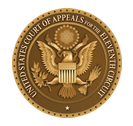 The Eleventh Circuit Federal Court of Appeals, which encompasses the states of Florida, Georgia, and Alabama, ruled Monday that police do not need to get a search warrant in order to obtain cell phone tower data from cellular providers during a criminal investigation. The 9-2 en banc decision in United States v. Davis overturned an earlier ruling by a three-judge panel of the same court.
The Eleventh Circuit Federal Court of Appeals, which encompasses the states of Florida, Georgia, and Alabama, ruled Monday that police do not need to get a search warrant in order to obtain cell phone tower data from cellular providers during a criminal investigation. The 9-2 en banc decision in United States v. Davis overturned an earlier ruling by a three-judge panel of the same court.
The case involved an investigation into a series of armed robberies in southern Florida. A man named Quartavious Davis was one of several men arrested and charged with the crimes. Following Davis’s arrest, the police applied to a federal magistrate for a subpoena ordering MetroPCS (Davis’s carrier) to produce stored “telephone subscriber records,” “phone toll records,” and “geographic location data (cell site)” associated with Davis’s cell phone. The magistrate agreed to issue the subpoena, and MetroPCS turned over the requested data. Prior to trial, Davis moved to suppress the information, arguing that it constituted a “search” under the Fourth Amendment, and that the police failed to obtain the required search warrant. The District Court judge denied the motion.
Much of the opinion deals with the provisions of the Stored Communications Act (SCA) governing access to business records, and whether despite those provisions the request for cell phone tower records constituted a “search.” The Eleventh Circuit concluded that the use of the SCA to obtain cell phone records does not violate the Fourth Amendment. Specifically, the court concluded that:
- Davis did not have ownership or possession of the business records that he wanted to suppress. Those records were owned by and in the possession of MetroPCS. Davis would have an ownership interest in the content of any messages or calls, but police did not request any such information.
- Davis had no subjective or objectively reasonable expectation of privacy with respect to cell tower data. The Court found that cell phone users implicitly understand that information about the location of their phone is necessary in order to make and receive phone calls, and that location information needs to be shared with the cellular carrier.
- Any changes to how cellular tower data is stored and made available to law enforcement should come from legislatures, not the courts.
- The government did not physically intrude on Davis’s property in any way.
- Even if police officers did engage in a “search” when they obtained the cell tower records, that search was “reasonable” for the purposes of the Fourth Amendment. Any violation of Davis’s right to privacy was minimal, and the state’s interest in the cell tower records is “compelling.”
In a footnote, the Court also noted that even if everything it said was somehow incorrect, the cell tower records still would be admissible under the “good faith” exception announced by the U.S. Supreme Court in United States v. Leon, 468 U.S. 897, 919-21, 104 S. Ct. 3405, 3418-19 (1984). A good argument can be made, however, that in the 31 years since Leon was decided, the “good faith” exception has largely devoured the exclusionary rule. But that’s a post for another day.